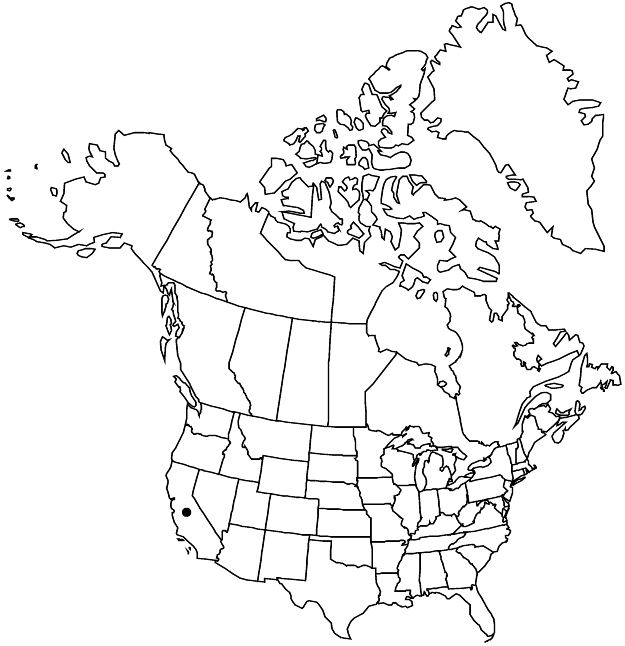Plants 6.5–18 cm, not cespitose. Stems usually puberulent, sometimes glabrous. Leaves: basal: petiole (3.2–)4–9.5 cm; blade usually purple-tinted abaxially, linear or lanceolate-elliptic, rarely ovate, 1.3–5 × 0.7–2.5 cm, margins usually irregularly lacerate, dentate, or serrate, sometimes entire, undulate, surfaces puberulent; cauline similar to basal except: petiole 1.7–8.3 cm; blade (2.8–)3.5–9.6 × 0.3–1.4 cm. Peduncles 3.4–11.5 cm. Flowers: lowest petal 6–12 mm.
Phenology: Flowering late May–late Jul.
Habitat: Montane slopes, often in moist, eroding soil, often beneath pines and firs in coniferous forests
Elevation: 1400–3000 m
Discussion
Viola pinetorum was described from collections made by E. L. Greene in the Tehachapi Mountains of southern California. There are similarities between the elongated leaves of var. pinetorum and those of V. purpurea var. mesophyta. The leaves of var. pinetorum are often twice as long as those of var. mesophyta and margins are usually undulate.
Variety pinetorum has been observed to be pollinated by two unidentified species of solitary bees and by an unidentified species of skipper (Hesperiidae).
Selected References
None.
